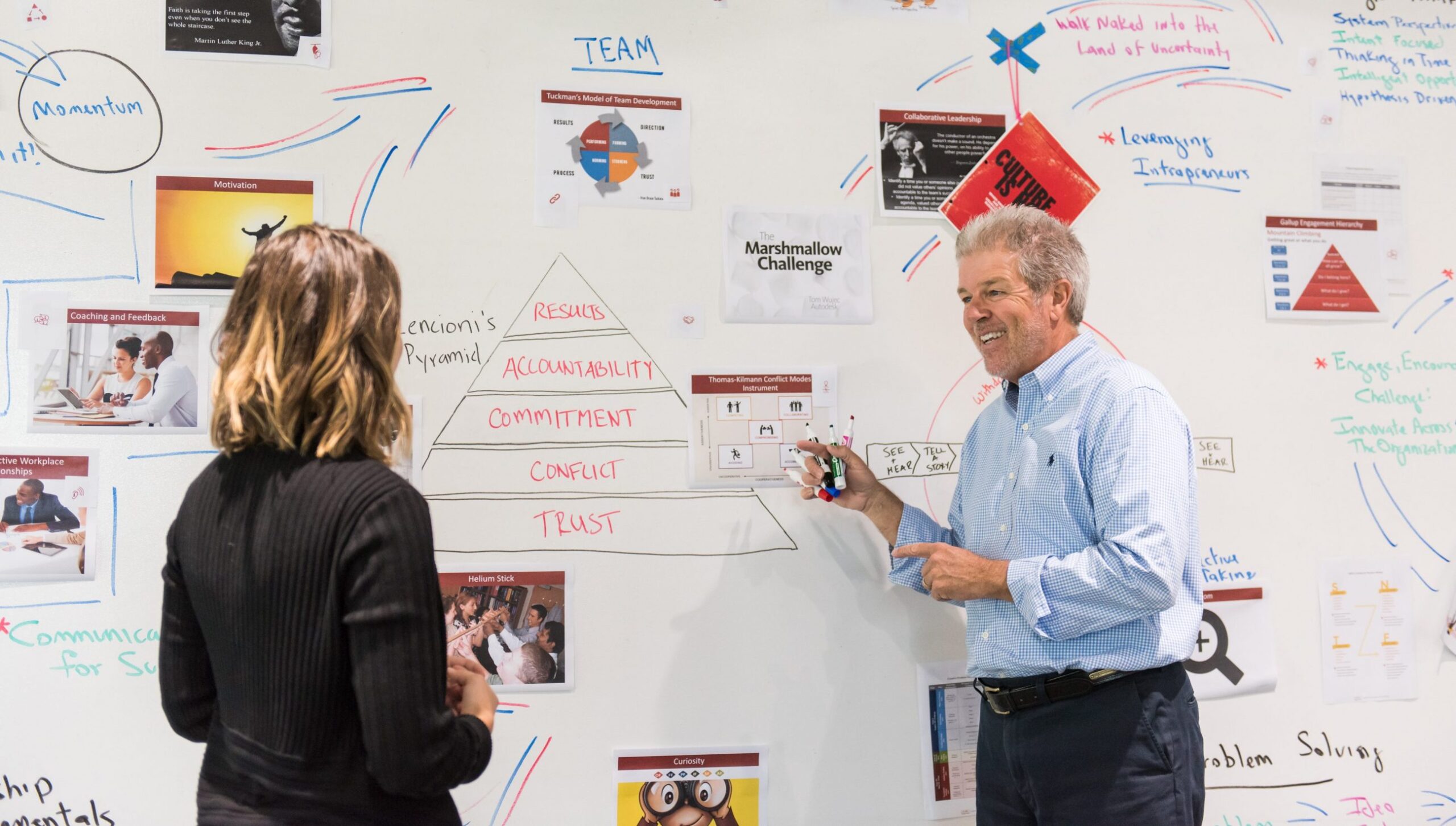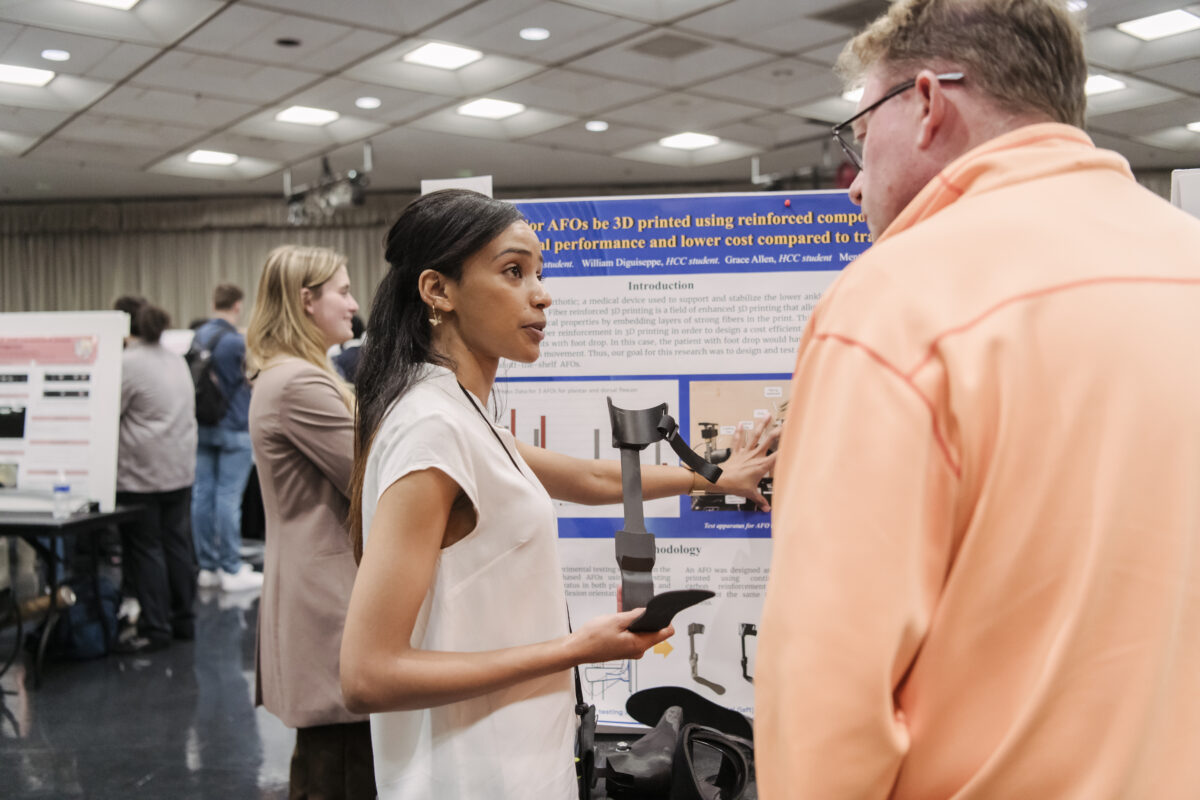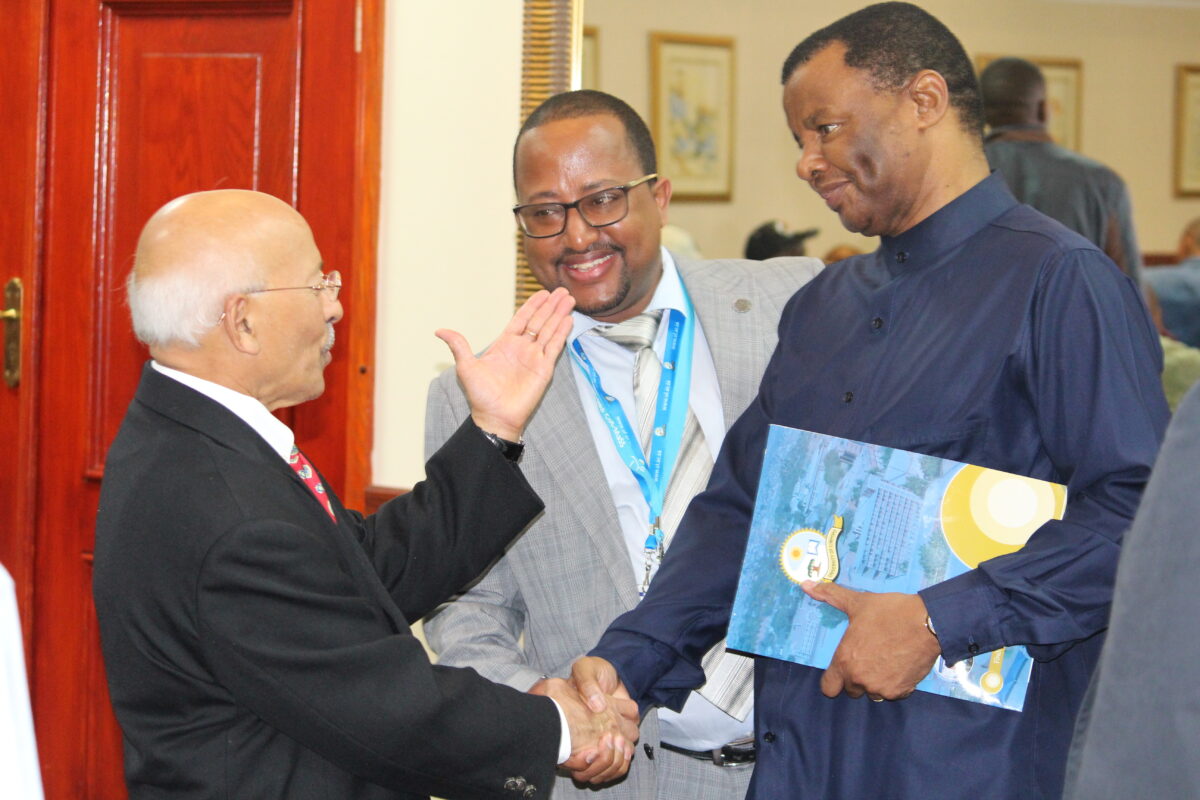New science faculty come to UMBC as experts in their fields, often with a decade of research experience. What may be less familiar is how to manage a large laboratory, from the ground up. How do you balance time spent teaching, researching, and mentoring students? Should you buy that useful but expensive piece of equipment? If, through your research, you discover something that could be commercially viable, how do you get it to market?
UMBC’s College of Natural and Mathematical Sciences (CNMS) is helping faculty learn how to answer these questions through a new five-day Entrepreneurial Skills Training (EST) program at the UMBC Training Centers. This winter, a pilot of the program, developed by Gib Mason ‘95, economics, and executive director of the Center for Leadership and Innovation at the UMBC Training Centers, taught 16 faculty members in biology, chemistry, physics, math, and marine biotech essential skills to grow their labs. Participants learned about leadership styles, maintaining work-life balance, and project management approaches, as well as entrepreneurial skills like marketing, negotiating, and intellectual property development.
“When a newly-hired assistant professor arrives on campus, we provide them with start-up funds, office and laboratory space, classes to teach, committee assignments, and the list goes on. Similar to an entrepreneur, they take upon themselves the full responsibility (including the liabilities) of starting a research enterprise,” says CNMS Dean Bill LaCourse. “This Entrepreneurial Skills Training program provides them with the tools they need to set up and operate a productive research program while living a more balanced life.”
“The things that we’ve been taught here, you aren’t taught in a traditional scientific career pathway,” said Fernando Vonhoff, assistant professor of biological sciences, at the end of the week-long training. He plans to apply philosophies he learned in the program, such as Agile Project Management, in his lab.
Like Vonhoff, Erin Green, assistant professor of biological sciences, appreciated expanding her project management skillset, as well as learning about the importance of emotional intelligence and how to develop a short, accessible description of her work. By developing business plan blueprints and elevator pitches, she and her colleagues learned how to more effectively explain to investors and the general public why their research matters—research from neurodevelopment to next-generation energy storage, from quantum computing to epigenetics.
LaCourse sees the cost of providing the Entrepreneurial Skills Training for new faculty as an investment in their career success—a way to help faculty effectively take on the challenges of leading research groups in a world where funding for basic science can be scarce. Ultimately, says Michelle Starz-Gaiano, associate professor of biological sciences, “The training has set us up to better seize opportunities as they arise.”
Mason and LaCourse are already planning future EST opportunities for new faculty, adjusting the program based on feedback from the pilot. One ongoing challenge remains how to make sure the training can help faculty answer the different kinds of management questions that might emerge in different settings, given the diversity of CNMS research. By continuing to refine the program, LaCourse is excited to develop a model that other institutions could emulate and grow further, helping to propel even more science faculty toward successful careers.
Image: Gib Mason instructs an entrepreneurship course at the UMBC Training Centers. Photo by Marlayna Demond ’11 for UMBC.
Tags: AlexBrownCenter, Biology, CNMS, TrainingCenters




